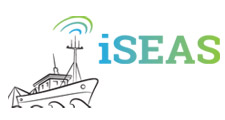
The main objective of the LifeiSEAS project is the implementation of innovative solutions for the reduction and management of fishing discards.
A small-scale pilot plant IIM-CSIS laboratories (Vigo) is being used from the beginning of the project. Recently a newer and bigger plant has been set up and is operating in the facilities of the Port Authority of Marin y Ria de Pontevedra. In both facilities different tests are being carried out to study possible solutions with the aim to valorize fishing discards.
Currently, fish muscle blocks are been elaborated, for products intended for human consumption. In the framework of the Life iSEAS project, these blocks are made from legal size specimens and species subject to TACs and quotas (e.g. mackerel, horse mackerel, blue whiting, etc.).
Likewise, and in parallel, other tests have been carried out in the framework of the VALDESCAR project. This is a project funded by the Spanish Secretaría General del Mar, led by the “Asociación de Armadores de Buques de Pesca de Marín”, in which the IIM-CSIC also participates. Its objectives are focused on the use (with added-value) of species not subject to TACs and quotas but with a low commercial value, such as gunard, pout, etc.
In Life iSEAS project there are also being obtained other products derived from fishing discards ass for example, fish hydrolysates. For this purpose, species such as megrim, blue whiting, hake, etc. have been used. For this, all the specimens used are below the legal minimum size, since any use for direct human consumption is authorised. Moreover, from a fraction (skins, bones, etc.) of some of the processed specimens there will be obtained some bioactive substances.
Samples of the products obtained from discards will be sent to processing companies, which could test theuse of this type of products in the coming months. The main objective of this action is to assess the industrial viability and interest of the substances. In case interest is confirmed, samples in larger quantities will be provided to carry out further testing and analysis of results.
In addition to the project coordinator (IIM-CSIC), other partners likeOPROMAR, JOSMAR and the CETMAR Foundation as well as the Port Authority of Marín and Ría de Pontevedra are actively collaborating in these actions of the Life iSEAS project. Their ultimate aim is to install and operate the pilot plant in the Port of Marín.


